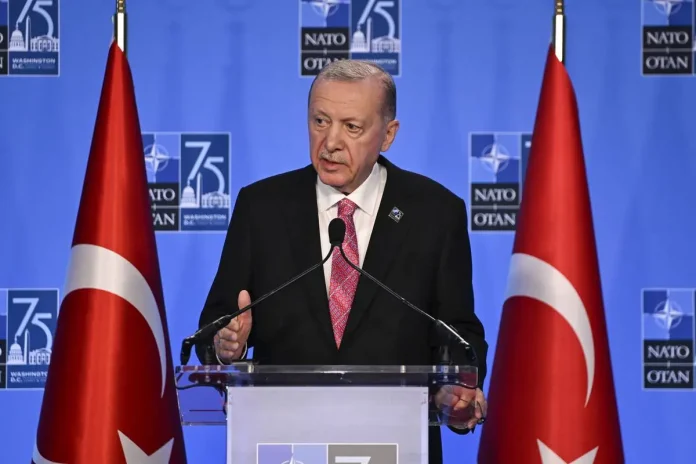August 1, 2024: Türkiye has halted all cooperation between NATO and Israel since October 2023, citing the ongoing conflict in Gaza as the primary reason, according to sources familiar with the situation. Turkish President Recep Tayyip Erdogan emphasized that NATO should refrain from engaging with Israel as a partner until the conflict concludes, Reuters reports.
Israel, a NATO partner, has maintained strong relations with the military alliance, especially with the United States, its ally. Before the escalation of the Gaza conflict, marked by Hamas’ attack on October 7, Türkiye was making efforts to restore its strained ties with Israel. However, the ensuing violence prompted a severe response from Ankara, which condemned Israel’s actions as genocide and ceased all bilateral trade.
Speaking anonymously, the Reuters report revealed that Türkiye vetoed all NATO engagements with Israel, including joint meetings and exercises. Ankara views Israel’s actions in Gaza, which have resulted in significant civilian casualties, as a breach of NATO’s founding principles. A UN inquiry in June confirmed that both Israel and Hamas committed war crimes during the early stages of the conflict, with Israel’s actions being classified as crimes against humanity due to the high number of civilian deaths. Israel disputes these findings, maintaining that its operations target Hamas, which has led to the deaths of nearly 40,000 people.
Türkiye plans to uphold its blockade of NATO-Israel cooperation until the conflict ceases, insisting that Israel’s actions violate international law and human rights. Following a NATO summit in Washington in July, President Erdogan declared that NATO’s partnership with the Israeli government was untenable under the current circumstances.
In response, Israel’s Foreign Minister recently called for Türkiye’s expulsion from NATO after Erdogan’s comments suggested potential military intervention similar to actions in Libya and Nagorno-Karabakh.
This development marks a significant shift in Türkiye’s foreign policy, reflecting its staunch opposition to Israel’s operations in Gaza and its broader implications for NATO’s internal dynamics.




